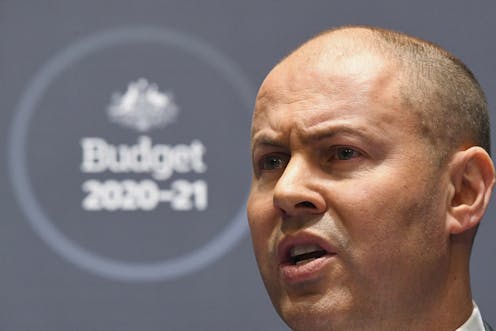Frydenberg tells Australians, ‘we have your back’
- Written by Michelle Grattan, Professorial Fellow, University of Canberra
 AAP/Lukas Coch
AAP/Lukas CochAccelerated tax cuts, cash splashes for pensioners, massive incentives for business to invest and a subsidy to hire unemployed people are the centrepieces of the Morrison government’s COVID-19 budget.
More than 11 million taxpayers will get a tax cut backdated to July 1, giving lower and middle-income earners tax relief this...
Read more: Frydenberg tells Australians, ‘we have your back’














